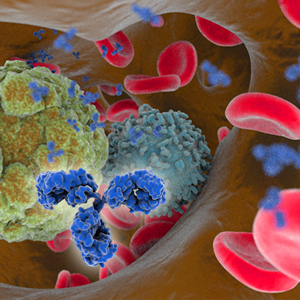 Congratulations to our winners!
Congratulations to our winners!
To recognize the research activities of promising student and postdoctoral attendees of Antibody Engineering & Therapeutics, The Antibody Society sponsors a competition for our student/postdoc members who submit posters for display at the meeting. Our judges select the best work based on originality, relevance and perceived impact on the field of antibody R&D.
This year, our judges selected 3 student/postdocs winners who receive: 1) a complimentary registration to attend the conference and pre-conference sessions; 2) an opportunity to give a short oral presentation of their work in one of the conference sessions; and 3) support for travel expenses.
The winners of the contest are:
Madeleine Jennewein (Ph.D. candidate, Harvard University). Poster title: Trans-placental antibody transfer selects for highly functional antibodies
Junpeng Qi (Postdoctoral Associate, The Scripps Research Institute. Poster title: Potent and selective antitumor activity of a T cell-engaging bispecific antibody targeting a membrane-proximal epitope of ROR1
Pietro Sormanni (Borysiewicz Biomedical Sciences Fellow (postdoctoral), University of Cambridge). Poster title: Third generation antibody discovery: In silico rational design
Antibody Engineering & Therapeutics, the annual meeting of The Antibody Society, is managed by KNect365. The meeting will be held December 10-13, 2018 in San Diego, CA. Society members receive a 15% discount on the registration fee. Contact us at membership@antibodysociety.org for the code.
Like this post but not a member? Please join!




